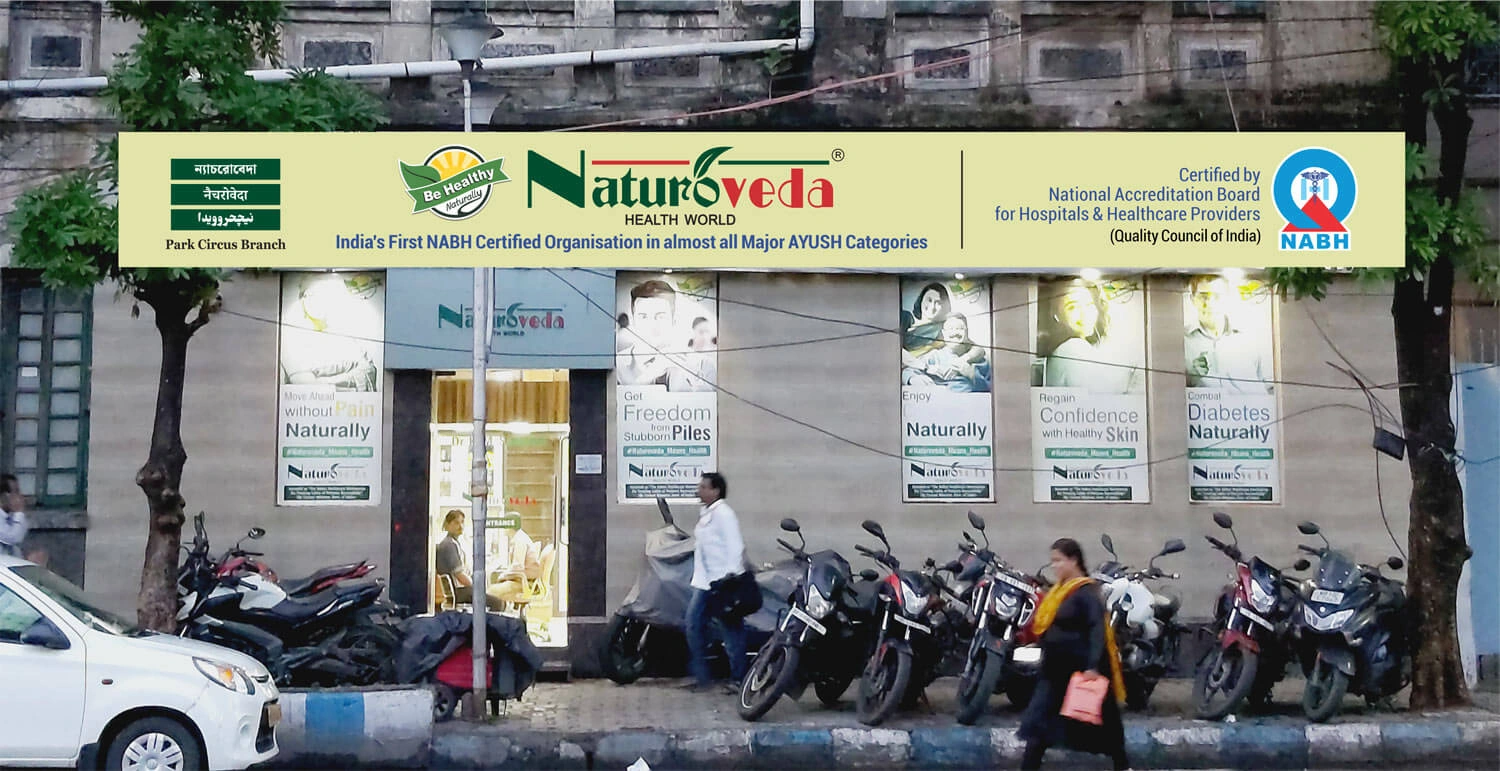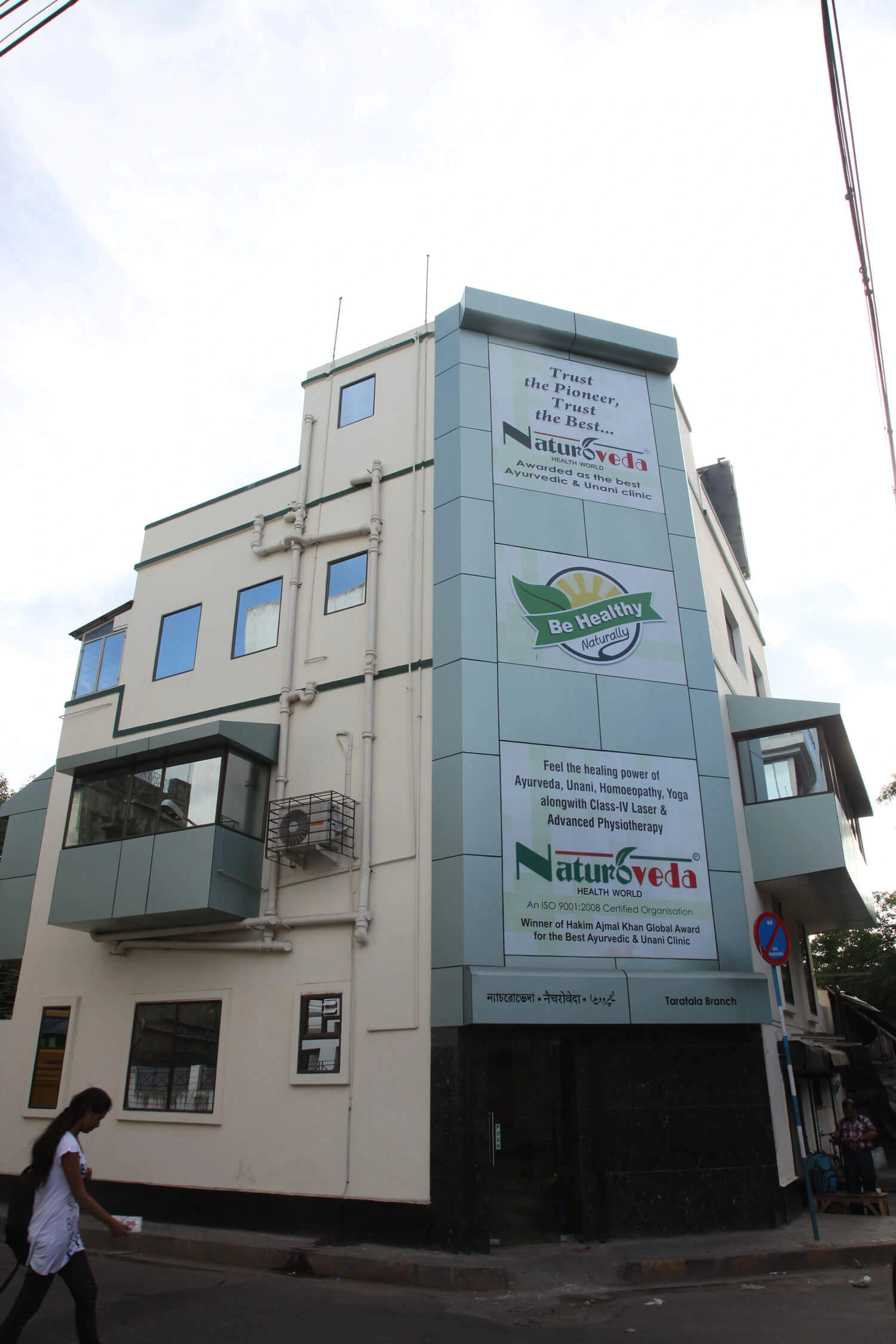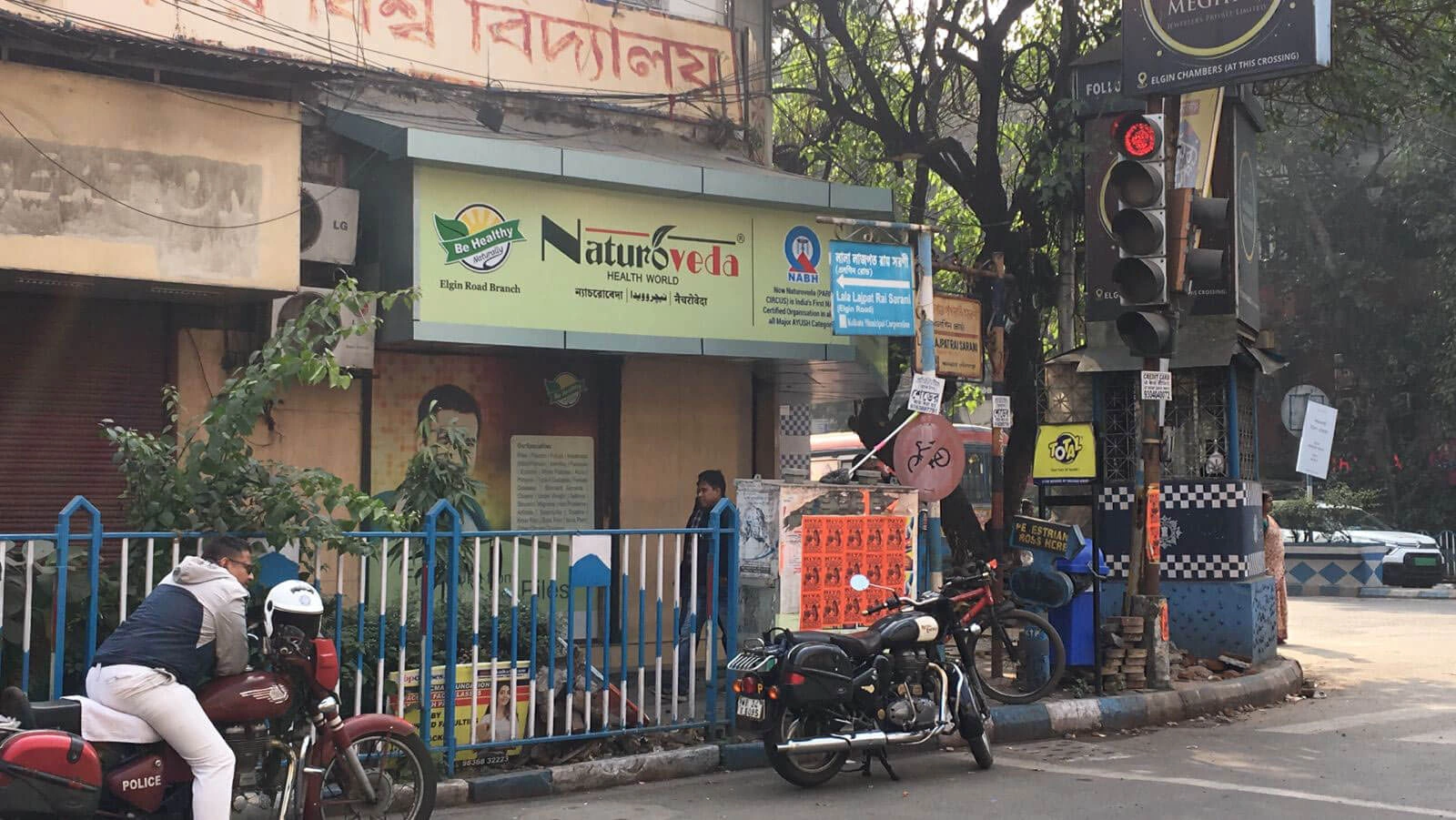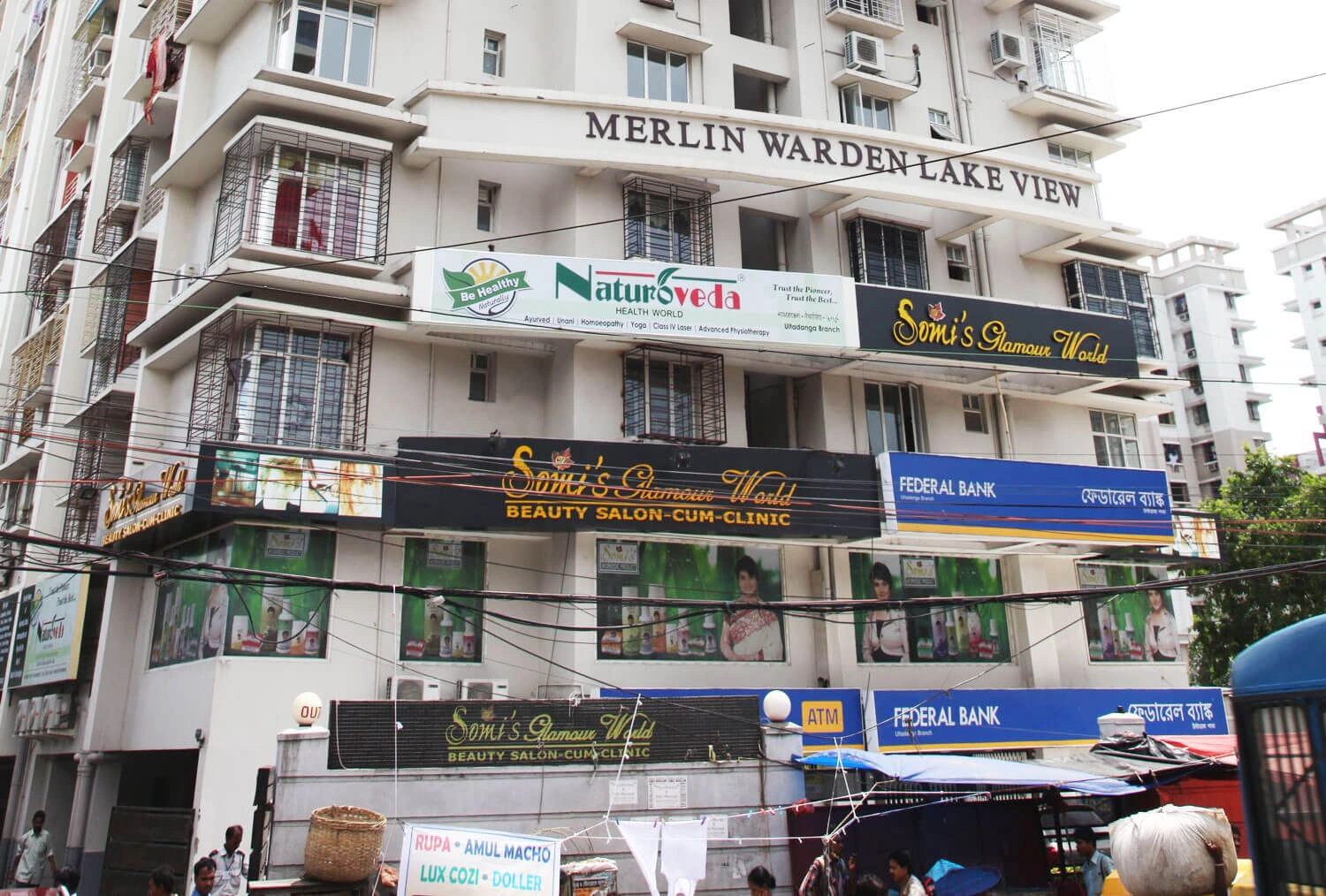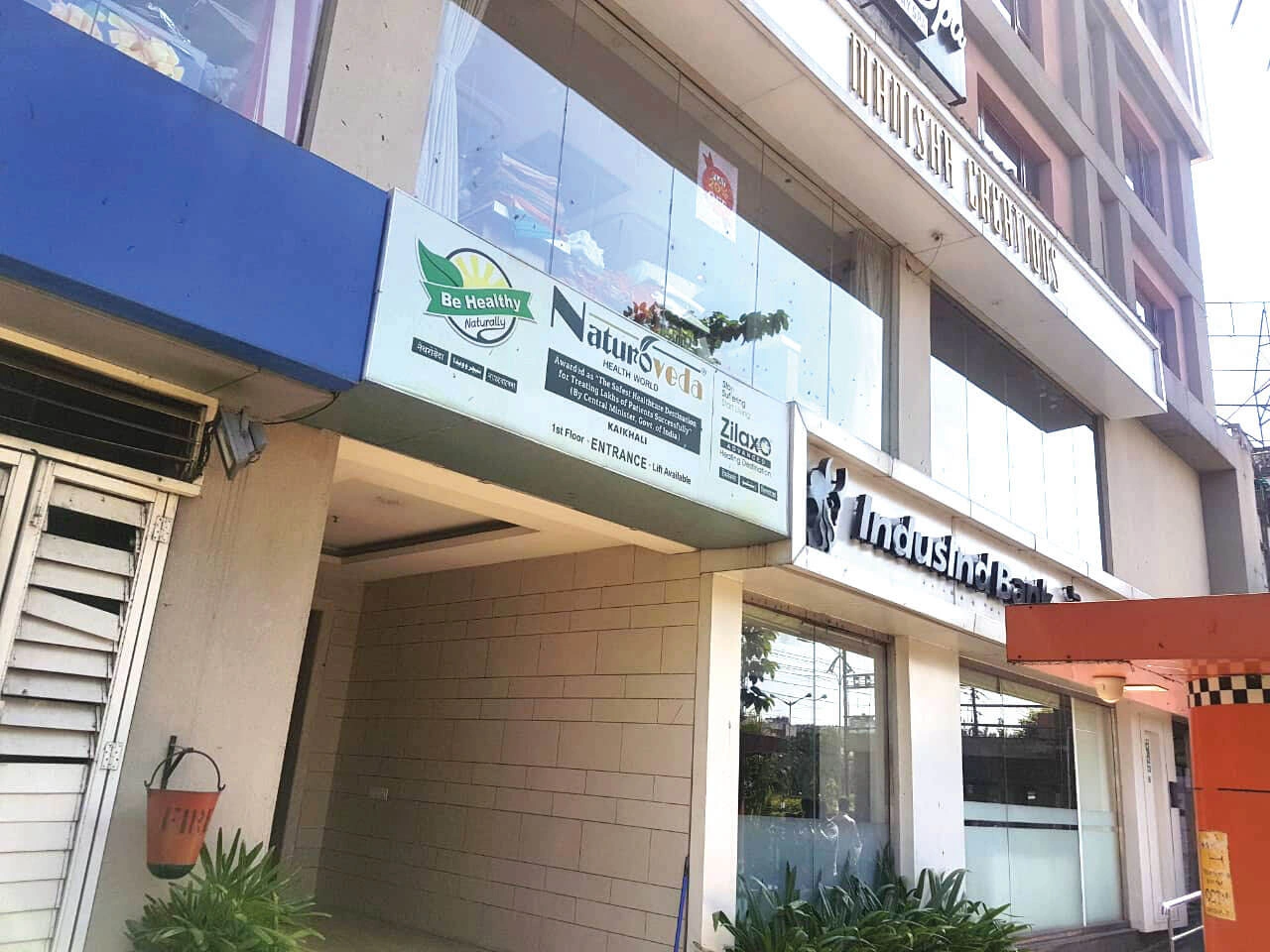History of Unani Treatment
The Unani Treatment System, as its name suggests, owes its origin to Egypt and its sister civilization Mesopotamia. It was further adapted by Arabs and was developed and improved tremendously by them into an elaborate medical science based on the framework of the teaching of Buqrat (Hippocrates) and Jalinoos (Galen).
The name Unani, derived from a Greek word ‘Ionian’ means the knowledge of the states of the human body in health and illness (decline of health). Since that time, it has been known as Greco-Arab medicine. Buqrat is regarded as the Father of Medicine for his remarkable contribution and radical outlook. He established that the disease was a natural process and symptoms were the reaction of the body to the disease.
Unani is one of the most well-known traditional medicine systems and draws on the ancient traditional systems of medicine of China, Egypt, India, Iraq, Persia and Syria. Practices of this traditional medical system vary greatly by country and region and influenced by factors such as culture, history, personal attitudes and philosophy. There were other Arab and Persian physicians such as Al Razi (Rhazes), Ibn-e-sina (Avicenna), Al Zahrawi and Ibn-e-Nafis who contributed a lot in this traditional medical system. Unani system of Medicine was introduced to India by the Arabs, and soon it took firm roots in the soil of India.
The Delhi Sultans, the Khiljis, the Tughlaqs and the Mughal Emperors developed the Unani Treatment System as a comprehensive Medical System. Another Unani physician Mohammad Ajmal Khan, better known as Hakim Ajmal Khan has huge contribution in the field of Unani Treatment System of India. More and more people are now seeking Unani treatment in Kolkata and in other major cities around the world.
Several Unani doctors and practitioners have been working for the past several decades in order to provide safe and effective Unani treatment for a wide variety of major diseases like Piles, Fissure, Fistula, Psoriasis, Eczema, Knee Pain, Back Pain, Arthritis, Osteoarthritis, Joint Pain and so on. Unani doctors also treat chronic sexual problems like Erectile Dysfunction (ED), Premature Ejaculation (PE), Lack of Sexual Desire (LSD) and many more.
Basic Principles
of Unani
According to the Unani Treatment protocol, Tabiyat is considered the supreme planner of our body that creates the healthy environment within the body and prepare to fight against the disease. The tabiyat may be defined as the sum total of structural, functional and psychological characteristics of the human being. The Unani doctors believe that if tabiyat is strong, then a man does not suffer from a disease easily, if it weakens, a person becomes prone to disease easily.
According to the Unani principles, the human body contains seven natural and basic components called Umoore Tabaiyah that are responsible for the existence of the human body and are considered responsible for the maintenance of health.
The seven basic natural components are
Arkan or Anasir
(Element)
Mizaj
(Temperament)
Akhlat
(Humours-Body Fluids)
Aaza
(Organs)
Arwah
(Vital Spirit)
Quwa
(Faculties of Powers)
Afaal
(Functions)
The Four Elements
of Life (Arkan or Anasir)
According to the practice of Unani medicine, the body is made up of the four basic elements –Earth, Air, Water and Fire which have different temperaments cold, hot, wet and dry respectively. Arkan (singular- Rukn) are the primary substances of the body. All creations in nature are composed of these four Arkan (elements). Each of these elements is endowed with inherent, binary qualities. The human body is also constituted of these four elements namely-
Naar (Fire) • Hawa (Air) • Ma (Water) • Arz (Earth)

Fire
+

Air

Water
+

Earth
The Temperament of the Body (Mizaj)
Different creations existing in the universe come into being by the interaction of these four elements in different quantities. As per the Unani System of Medicine, contrary qualities of these elements counteract with each other and a new quality develops in the compound that is different from the original qualities of the participating elements.
This new quality that develops in the compound is known as Mizaj (Temperament). Possessed in different proportions, Mizaj is inherent in all entities in the cosmos, including plants, minerals and animals.
The equilibrium of the individual’s elemental combination and resulting Mizaj, as determined by Tabiyah, provides a stable constitution to that individual — in other words, health. Therefore, Mizaj plays a pivotal role in Unani treatment in characterizing a person’s normal state (physical, mental and social), as well as the nature of a disease.
The four essential Mizaj (temperaments) are –
Sanguine Temperament (Damwi Mizaj)
This type has also been called the 'Muscular' temperament in Unani Treatment System. This temperament is Hot & Moist in nature. It belongs to the Air element. Individuals with this temperament will look fair with a reddish or shiny complexion, full muscular development, large & full veins and a strong pulse. They are confident with positive thinking and are prone to engaging in physical excesses.
Phlegmatic Temperament (Balghami Mizaj)
This type has also been called the 'Lymphatic' temperament. This temperament is Cold & Moist in nature. It belongs to the Water element. It is characterised a fair complexion, light hair, general softness & laxity of tissues and a pulse that is soft and wide. The Phlegmatic type is slow and sluggish, apathetic, not readily excited, and prone to becoming flabby & overweight.
Unani treatment for Asthma or other phlegm-related bronchial diseases depends on this temperament. Centres in Kolkata are providing treatment for various diseases based on these different temperaments.
Choleric Temperament (Safrawi Mizaj)
This type has also been referred to as the ‘Bilious’ temperament. This temperament will be Hot & Dry in nature. It belongs to the Fire element. It is characterized by a slim build with much nervous activity. These individuals are passionate, quick to become excited or angry and just as quick to forget their excitement. As per the Unani Treatment System, they are hyperactive and highly sensitive and may be prone to suffer from stress, anxiety and sleep deprivation.
Melancholic Temperament
(Saudawi Mizaj)
This type has also been referred to as the ‘Nervous Temperament’. This type of temperament is Cold & Dry in nature. It belongs to the Earth element. Usually the individual has a darkish complexion and appears emaciated. Their tissues are hard & dry and their pulse is narrow and thread-like as per Unani Physicians. This temperament is prone to frequent spells of pessimism, a gloomy state of mind and depression.
The Four Humours of the Human Body (Akhlat)
Hippocrates (Buqrat) propounded the doctrine of fluids or humours of the body, which are derived from food and various hormones & enzymes. The Mizaj of a person is expressed by the preponderance of a particular khilt (humour) present in his body. Thus, a person may be Damwi (sanguineous), Balghami (phlegmatic), Safrawi (choleric) or Saudawi (melancholic) in nature according to the preponderance of Dam, Balgham, Safra or Sauda respectively. Health is preserved until these humours are maintained in proportion according to their quantity and/or quality. Diseases like Piles, Fissure, Fistula, Asthma, Liver Disease, Joint Pain, Arthritis, Skin Disease, Psoriasis, Eczema, Diabetes and even Sexual Diseases develop as soon as the balanced proportion of these akhlat is disturbed in their quantity and/or quality. With the disruption of right balance among the four humours, the normal Mizaj of a person deteriorates into ill temperament marking the onset of illness. In Unani Medicine, different measures are adopted for treatment, to restore the normal Mizaj and eliminate the disease. Unani Doctors categorized the humours into four groups.
These fluids are –
Dam (Blood)
The blood is a mixture of all four humours. Dam accounts for a significant quantity of the mixture, therefore its red colour dominates and the whole mixture is broadly referred to as dam (blood). Dam is hot and wet in nature.
Balgham (Phlegm)
Phlegm is a thick, slippery and sticky substance produced by the throat, bronchial passages and lungs. Phlegm, also called sputum, contains mucus and sometimes other substances, such as dead cells, pus or foreign particles, including dust. Balgham is cold and wet in nature.
Safra (Yellow bile)
Safra is produced in the stomach and the symptoms of safra are thirst, gastric inflammation, bitter taste and greenish-yellow vomited substance. Safra is hot and dry in nature.
Sauda (Black bile)
Sauda is also produced in the stomach and the symptoms are sour taste, black vomited substance and lack of thirst. Sauda is cold and dry in nature. Unani Treatment System focuses on restoring the natural balance (Mizaj) of these humours to treat diseases and ensure long-term holistic wellbeing.
The blood is a mixture of all four humours. Dam accounts for a significant quantity of the mixture, therefore its red colour dominates and the whole mixture is broadly called as dam (blood). Dam is hot and wet in temperament.
Phlegm is a thick, slippery and sticky substance produce by the throat, bronchial passages, and lungs. Phlegm, also called sputum, contains mucus and sometimes other substances, such as dead cells, pus or foreign particles, including dust. Balgham is cold and wet in nature.
Safra is produced in the stomach and the symptoms of safra are thirst, gastric inflammation, bitter taste and greenish-yellow colour if vomited. Safra is hot and dry in nature.
Sauda is also produced in the stomach and it has sour taste, black colour if vomited, and lack of thirst. Sauda is cold and dry in nature.
Treatment of Simplified or Compound Organs (Aaza)
by Unani Doctors
The human body consists of various organs, and the health or disease of each individual organ affects the overall state of health. According to Unani Treatment System, Aaza have been classified into 2 categories as:
Aaza e Mufridah or Baseet
(Simple Organs – Cells and Tissues)
It is also known as Aaza Baseet or Aaza e Mufridah (Simple Organs). It is also defined as the organ, the smallest part of which exactly resembles the whole. A simple organ is therefore, homogeneous in structure throughout e.g. a piece of bone is still a bone. Aaza e Baseet follows cartilaginous tissue, ligaments, tendons, nervous tissue, membranes, flesh and fat. Unani doctors help to diagnose the issues that occur in the simple organs based on the principle of Unani Treatment System.
Aaza e Murakkebah or Aliyah
(Compound Organs – Organs or Membrane)
The Aaza e Murakkebah are those which are heterogeneous and are composed of multiple Aaza e Baseet and other substances. These are also known as Aaza e Aliyah (Mechanical organs) e.g. – Heart, Liver, Stomach, Intestine, Brain, etc. The best Unani treatment seeks to help the individual if there is any disorder in these mechanical organs.
It is also known as Aaza Baseet or Aaza e Mufridah (Simple Organs). It is also defined as the organ, the smallest part of which exactly resembles the whole. A simple organ is therefore, homogeneous in structure throughout e.g. a piece of bone is still a bone. Aaza e Baseet follows cartilaginous tissue, ligaments, tendons, nervous tissue, membranes, flesh and fat. Unani doctors help to diagnose the issues that occur in the simple organs based on the principle of Unani Treatment System.
The Aaza e Murakkebah are those which are heterogeneous and are composed of multiple Aaza e Baseet and other substances. These are also known as Aaza e Aliyah (Mechanical organs) e.g. – Heart, Liver, Stomach, Intestine, Brain, etc. The best Unani treatment seeks to help the individual if there is any disorder in these mechanical organs.
Balance of Vital Power (Arwah)
Arwah, singular “Ruh” represents such constituents which the body receives from atmospheric air and without which the sustenance of life cannot be imagined. It is considered to be the life force and is therefore given importance in the diagnosis and treatment of diseases. Ruh is a gaseous substance, obtained from the inspired air. It helps in all the metabolic activities of the body. It is considered to be the life force and is therefore, important in diagnosis and treatment of diseases. Arwah are the carriers of different powers, which make the whole body system and its parts functional.
Balance of Vital Power (Quwa)
For every living being, certain functions are vital to preserve the life. For these functions to take place, certain powers are prerequisite. According to Unani medicine and treatment principle, there are three types of power inherent in every human being to maintain life and propagate the generation. Quwa Tabiyah (Natural faculty), Quwa Nafsaniya (Psychic and Mental faculty) and Quwa Haywaniya (Vital faculty) are the three powers present in the human body. Each and every organ is furnished with a power through which the physiological functions are performed by that particular organ.
Quwa Tabiyah (Natural Faculty)
Quwa Tabiyah are those which serve the function of metabolism, nutrition, growth and reproduction in the body and expel out the waste products from the body for the preservation of individual as well as species. Liver is the principal organ of this uwat.
Quwa Nafsaniya (Mental Faculty)
Quwa Nafsaniya are those faculties which perform intellectual sensory and motor functions in the body. Brain is the principal organ of this quwat.
Quwa Haywania (Vital Faculties)
Quwa Haywania are those which provide vitality to the organ to enable them to receive Quwat Nafsaniya to accomplish various activities of life. Heart is the principal organ of this quwat.
Quwa Tabiyah are those which serve the function of metabolism, nutrition, growth and reproduction in the body and expel out the waste products from the body for the preservation of individual as well as species. Liver is the principal organ of this uwat.
Quwa Nafsaniya are those faculties which perform intellectual sensory and motor functions in the body. Brain is the principal organ of this quwat.
Quwa Haywania are those which provide vitality to the organ to enable them to receive Quwat Nafsaniya to accomplish various activities of life. Heart is the principal organ of this quwat.
Proper Functioning of Organs (Afaal)
These include the movements and functions of the various organs of the body. To maintain proper health of the body it is necessary to ensure that various organs are not only in proper shape themselves but are also performing their respective functions properly. The best Unani treatment requires a thorough understanding of the proper functioning of organs to diagnose the root cause of the disease.
Principles of Diagnosis
The diagnostic process in the Unani Treatment System is dependent on observation and physical examination. Any illness of a person is to be regarded as a product of the stuff and material a person is made of, the kind of temperament, structure and strength of faculties they have, the type of factors operating on a person from outside and nature’s own attempt to maintain their physical functions and ward off disruptions to the extent possible. Keeping all interrelated factors in view, the cause and nature of the illness are determined and treatment is chalked out.
Diagnosis involves investigating the causes of disease thoroughly and in detail. For this, the physicians depend mainly on Pulse Examination (Nabz Shanasi) reading and examination of urine (Qaroorah) and stool. The alternating contraction and expansion of the arteries produced by the systolic and diastolic actions of the heart is called Pulse Examination (Nabz Shanasi). Besides the means of pulse reading and physical examination of urine and stool, other conventional methods such as inspection, palpation, percussion and auscultation are also used for diagnostic purposes.
The physical examination of urine (Qaroorah) helps significantly in the diagnosis of not only urogenital diseases but also other systemic disorders. Several aspects are taken into account for diagnosis, e.g. quantity, colour, odour, consistency, foam or froth, precipitates, clarity and turbidity. Similarly, the physical examination of stool also helps in the diagnosis of various diseases. Its colour, quantity, consistency and presence of foreign bodies are observed during this physical examination. In addition to the above, Unani physicians have emphasized on the importance of the physical examination of patients e.g. diagnosis by observing skin, nails, tongue, etc. Other modern tools of diagnosis are also used to confirm the diagnosis.
Assessment of Mizaj (Temperament)
Normal or abnormal temperament is not determined by chemical analysis of different Akhlat of the body. However, the Unani doctors have devised means to find out Mizaj. Assessment of Mizaj or Temperament is necessary for the proper treatment of diseases. The sign and symptoms by which Mizaj can be diagnosed are classified into the following 10 divisions-
1. Malmus (Palpation)
Through touching of the body, two things are seen – Body heat and Hardness & softness of the body (Salabah, Laiyenat, Malasah an Kushunah, etc.). Body heat is measured by touching the body by an equable person under normal conditions, but the accurate method of recording the temperament of body is a thermometer.
2. Laham washaham (Flesh and Fat)
This is another criterion for determining temperament of the body. Thus, Laham –well developed and strong muscles, indicates toward hararat and rutubat (heat and moistness) of temperament. If the muscle loss is low and the body is devoid of fat, it indicates towards yubusat (dryness) of temperament.
3. Shaar (Hair)
The following things are seen in the hair – a) Fast or the slow growth of hair b) Excess and the sparseness of hair c) Thickness or the thinness of hair d) Straightness or the curliness of hair e) Colour of hair
4. Laun –al- badan (Body complexion)
The colour of the body also indicates towards a particular temperament. Different colours indicate toward different temperaments. According to “RabbanTabri”, the real cause of bodily colour is the dominance of particular khilt and its diversion towards the skin at the time of formation of the embryo, as we know the melanocytes are responsible for skin colours.
5. Sahna /Haiyat al aza (Physique)
The temperament also affects the physique. Therefore, development of different organs and body build indicate towards particular temperament. Anatomically four types of personalities have been described, which are probably influenced by the respective temperaments. These are Hypersthenic type, Sthenic type, Hyposthenic type, Asthenic type.
6. Kaifiyat -e- infal (Responsiveness of organs)
This is seen by tendency of organs to accept the effect of heat or cold with slowness or fastness.
7. Naum wayaqza (Sleep and Wakefulness)
The normal sleep and wakefulness indicates the presence of normal temperament, especially indicating the temperament of the brain. Excessive wakefulness indicates towards hot and dry temperament, while excessive sleep indicates increased cold and wet (Barid Ratab) temperament of the brain.
8. Afal- ul- aza (Functions of organs)
Under this heading different physiological function of the body are examined. Thus, in the light of these functions, the temperament is interpreted.
9. Fuzlat -e -badan (Excreta of body)
The inspection and examination of different excreta of the body also indicate certain temperaments. According to the modern concept of the excreta of the body are of four types, which are described as Urine, Faeces, Sputum and Sweat
10. Infalat- e –nafsaniya (Psyche)
Here, the whole psychological and mental setup of a man is studied. The nervous functions are examined and interpreted in the light of facts given by the Unani doctors.
Assessment of Nabz (Pulse)
After the determination of Mizaj, the diagnosis is corroborated by the findings of the pulse. There are several hundred pulses found in a gamut of diseases and there is a specific pulse for a specific body condition or internal environment. There are ten features that constitute a Nabz (pulse) as per the Unani Treatment System. These ten features are meticulously examined to determine, if these characteristics are normal or abnormal. These ten features are as follows:
Miqdar –e- Imbesat
(Degree of expansion)
Kaifiyat –e- Qara
(Impaction on the fingers)
Zamana –e- Harkat
(Duration of movement)
Qiwam -e- Ala
(Texture of artery)
Khala wa Imtala
(Emptiness and fullness of artery)
Malmas
(Feeling of hot or cold)
Zamana-e- Sukoon
(Duration of rest)
Istawa wa Ikhtalaf
(Equality or inequality)
Nizam wa Admenizam
(Regularity or irregularity)
Wazn
(Rhythm)
Assessment of Qaroorah (Urine) by Unani Doctors
From thousands of years, it has been revealed that the examination and observation of Urine was the first tool for the diagnosis of illness and the management of patients. They believed that urine examination could be helpful in medical judgement and the determination of an individual’s temperament. In this regard, Urine should be taken as a whole sample in a glass jar to ensure a more reliable observation.
Moreover, sampling should be done in the morning after a moderate night’s sleep while the person is still fasting and it should be examined within 1 to 6 hours. Different features, including colour, density, transparency, sediment, volume, odour, taste and froth are evaluated in the Unani Treatment Methodology. The urine glass should be clear and colourless and must be thoroughly washed before use. Urine should be kept in a place that is not too cold or hot and away from wind and sunlight.
Mode of Unani Treatment
Ilaj-bil-tadbeer (Regimental Therapy)
Regimental therapy (Ilaj-bil-tadbeer) is one of the most popular methods of treatment, practised by the best Unani doctors. It is basically application of certain special techniques or physical methods of treatment practised in many Unani Kolkata Centres to improve the constitution of body by removing waste materials and improving the defence mechanism of the body. In other words, regimental therapies (Ilaj-bil-tadbeer) are mostly non medicinal techniques or procedures by which Unani physicians modulate the patient’s habitat, lifestyle and dietary habits of the patient. They practise some other therapeutic regimens for the treatment of various diseases. Literally “Tadbeer” is an Arabic word which means “regimen” or “systemic plan” whereas “Ilaj” means “therapy” or “treatment”. Thus, “Ilaj-bil- tadbeer” means a kind of Unani treatment through special regimen. It is a method, through which maintenance of general health and care of the sick person is attained through modulation or modification in Asbaab-e-sitta Zarooriya (six essential factors for life). In Naturoveda, these therapies are being practised by the most experienced Unani doctors.
Ilaj-bil-dawa (Pharmacotherapy)
Pharmacotherapy (Ilaj-bil-dawa) or treatment through drugs is recommended in conditions, where these procedures are not adequate in correcting the alterations in health. It is significant that this system is based on crude/whole drug therapy in which active principle of a drug is not isolated but is allowed to co-exist with other natural parts of a plant to counteract the side effects.
In this crude drug therapy, in most of the cases, there is no direct attack on the causative organism of the disease but the internal atmosphere of the body is altered, due to that, the causative organisms are either killed or become inactive. There are herbs that act as immuno- modulators in the body by encouraging the defence mechanism of a person.
In the field of Pharmacotherapy, the Unani system of medicine displays a unique wealth of knowledge and experience which went into the development of this treatment modality. Naturoveda, a well-known Unani Clinic in Kolkata, provides this high-quality treatment for various diseases. According to Unani treatment, drugs having states opposite to those present in the diseases should be applied. Natural drugs like plants, minerals and animal-derived drugs are more advisable in this system.
Ilaj-bil-yad (Surgical Therapy)
In Unani System of Medicine, since ancient times, Surgery (Ilaj-bil-Yad) has always been a part of treatment. It is the treatment of injuries or disorders of the body by incision or manipulation, especially with the help of some surgical instruments. Surgery (Ilaj-bil-Yad) is an ancient medical specialty that uses operative manual and instrumental techniques on a patient to investigate and/or treat a pathological condition such as disease or injury, to help improve bodily function or appearance or to repair unwanted ruptured area (for example, a perforated ear drum).
Unani physicians were pioneers in surgery and had developed their own instruments and techniques. They practised surgery and wrote many remarkable books on the subject like, Kitab-al-Tasreef by Abul Qasim Zahravi, Kitab-al-Umda fil Jarahat by Ibn-al-Quf Masihi and Kamilus San’a by Ali Abbas Majoosi, etc.
An Arab Unani physician, Abul Qaasim Zahrawi, wrote a book entitled Kitab al-Tasrif li-man ‘ajiza ‘anit-Ta‘leef with illustrations of surgical instruments. It consisted of 30 volumes covering topics of medicine, surgery, pharmacy and other health sciences. The last volume of the book, comprising 300 pages, is dedicated solely to surgery-related topics. He treated Surgery as a separate subject for the first time in the history of Medicine. He described several procedures, inventions and techniques, including tonsillectomy, tracheotomy, craniotomy, thyroidectomy, extraction of cataract, removal of kidney stones, caesarean section, dentistry, etc.
Regimental therapy (Ilaj-bil-tadbeer) is one of the most popular methods of treatment, practised by the best Unani doctors. It is basically application of certain special techniques or physical methods of treatment practised in many Unani Kolkata Centres to improve the constitution of body by removing waste materials and improving the defence mechanism of the body. In other words, regimental therapies (Ilaj-bil-tadbeer) are mostly non medicinal techniques or procedures by which Unani physicians modulate the patient’s habitat, lifestyle and dietary habits of the patient. They practise some other therapeutic regimens for the treatment of various diseases. Literally “Tadbeer” is an Arabic word which means “regimen” or “systemic plan” whereas “Ilaj” means “therapy” or “treatment”. Thus, “Ilaj-bil- tadbeer” means a kind of Unani treatment through special regimen. It is a method, through which maintenance of general health and care of the sick person is attained through modulation or modification in Asbaab-e-sitta Zarooriya (six essential factors for life). In Naturoveda, these therapies are being practised by the most experienced Unani doctors.
Pharmacotherapy (Ilaj-bil-dawa) or treatment through drugs is recommended in conditions, where these procedures are not adequate in correcting the alterations in health. It is significant that this system is based on crude/whole drug therapy in which active principle of a drug is not isolated but is allowed to co-exist with other natural parts of a plant to counteract the side effects.
In this crude drug therapy, in most of the cases, there is no direct attack on the causative organism of the disease but the internal atmosphere of the body is altered, due to that, the causative organisms are either killed or become inactive. There are herbs that act as immuno- modulators in the body by encouraging the defence mechanism of a person.
In the field of Pharmacotherapy, the Unani system of medicine displays a unique wealth of knowledge and experience which went into the development of this treatment modality. Naturoveda, a well-known Unani Clinic in Kolkata, provides this high-quality treatment for various diseases. According to Unani treatment, drugs having states opposite to those present in the diseases should be applied. Natural drugs like plants, minerals and animal-derived drugs are more advisable in this system.
In Unani System of Medicine, since ancient times, Surgery (Ilaj-bil-Yad) has always been a part of treatment. It is the treatment of injuries or disorders of the body by incision or manipulation, especially with the help of some surgical instruments. Surgery (Ilaj-bil-Yad) is an ancient medical specialty that uses operative manual and instrumental techniques on a patient to investigate and/or treat a pathological condition such as disease or injury, to help improve bodily function or appearance or to repair unwanted ruptured area (for example, a perforated ear drum).
Unani physicians were pioneers in surgery and had developed their own instruments and techniques. They practised surgery and wrote many remarkable books on the subject like, Kitab-al-Tasreef by Abul Qasim Zahravi, Kitab-al-Umda fil Jarahat by Ibn-al-Quf Masihi and Kamilus San’a by Ali Abbas Majoosi, etc.
An Arab Unani physician, Abul Qaasim Zahrawi, wrote a book entitled Kitab al-Tasrif li-man ‘ajiza ‘anit-Ta‘leef with illustrations of surgical instruments. It consisted of 30 volumes covering topics of medicine, surgery, pharmacy and other health sciences. The last volume of the book, comprising 300 pages, is dedicated solely to surgery-related topics. He treated Surgery as a separate subject for the first time in the history of Medicine. He described several procedures, inventions and techniques, including tonsillectomy, tracheotomy, craniotomy, thyroidectomy, extraction of cataract, removal of kidney stones, caesarean section, dentistry, etc.





